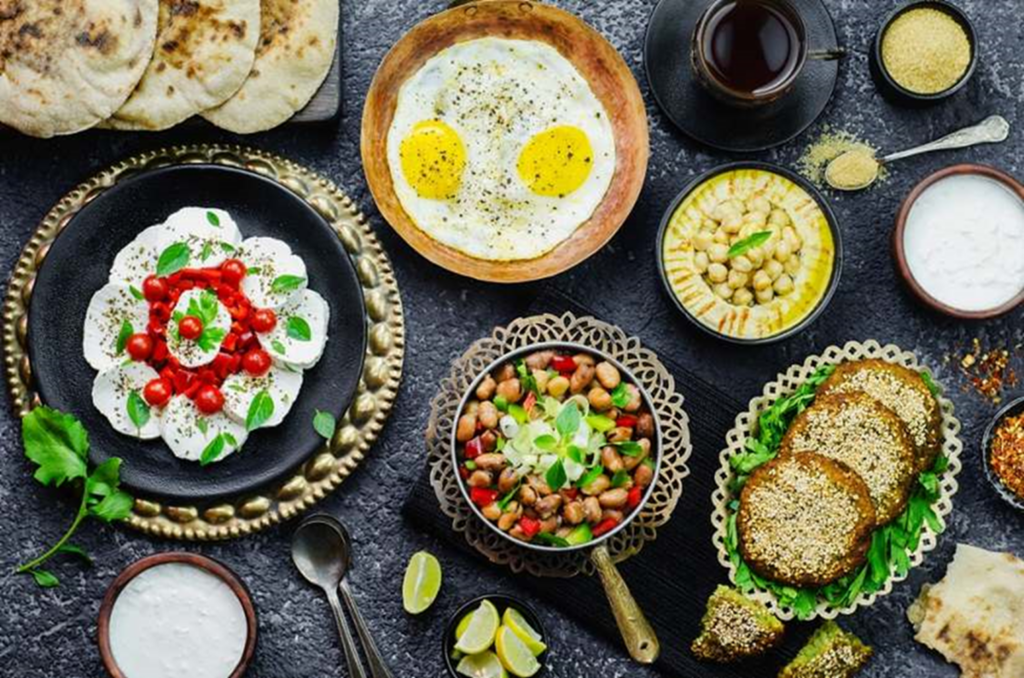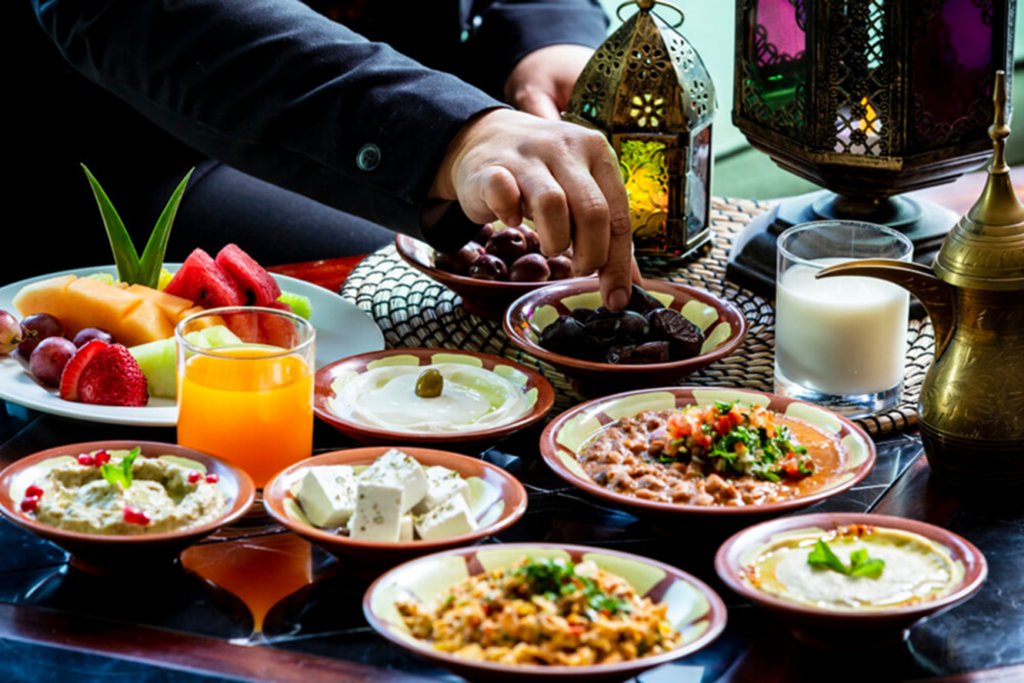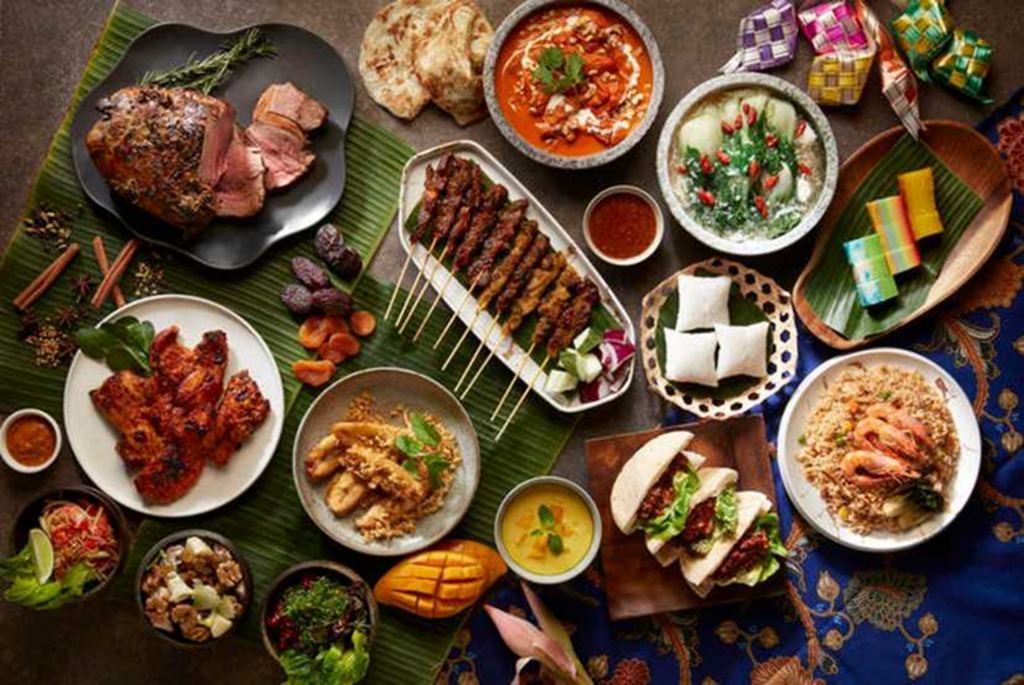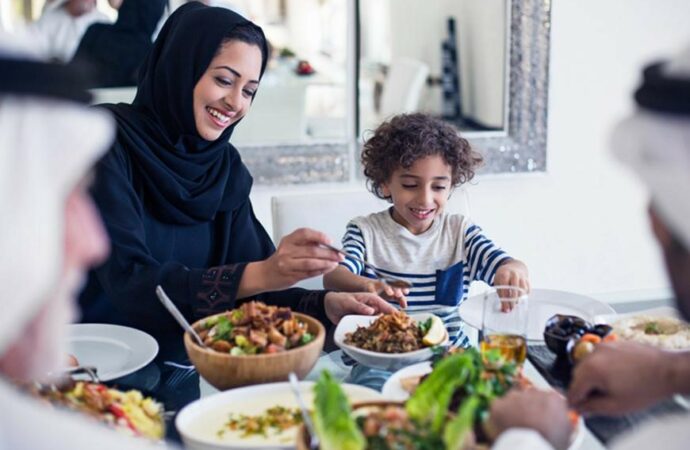Whether you enjoy fasting or not, Ramadan is a time to make sure you’re meeting your nutritional needs. Our bodies are in desperate need of energy while we fast during the day. You can only obtain it through food consumption. It means that making the most of your iftar and suhoor meals will be critical
Whether you enjoy fasting or not, Ramadan is a time to make sure you’re meeting your nutritional needs. Our bodies are in desperate need of energy while we fast during the day. You can only obtain it through food consumption.
It means that making the most of your iftar and suhoor meals will be critical to sustaining your fast, managing your cravings, and leaving you with enough energy to survive the fast and focus on prayer and daily activities.
During Ramadan, there are many different foods and drinks available, but choosing the best, most nutritious, and ideal will undoubtedly help you during the period.
To assist you, here are 8 foods for suhoor and iftar that you should consume.
#Healthy Foods for Suhoor

1. Oatmeal
This is an excellent breakfast option that will benefit your fast significantly. Oats are high in fiber, take a long time for the body to break down, and are a good source of carbohydrates to keep you going throughout the day.
Oatmeal can also help to improve your digestive system and lower your blood pressure. It can also be topped with fruit and nuts for a nutritious suhoor meal.
you can find the best Oats at www.jomlahbazar.com!
2. Eggs
It’s critical to get a good source of protein during suhoor. Eggs are a great option for suhoor because they are light, can be prepared in a variety of ways, and can be supplemented with other dishes.
Eggs also contain important nutrients like vitamins B and D, as well as minerals like iron and zinc.
3. Fruit
Even if you aren’t fasting during Ramadan, the fruit is an important part of any healthy diet. And, especially for suhoor, fruit can go a long way before you resume fasting.
Fruits like bananas, strawberries, berries, grapes, and apples can help you feel full, give you a boost of energy from their natural sugars, and provide your body with the essential nutrients it needs to get through the day without feeling sluggish or tired due to malnutrition.
www.jomlahbazar.com delivers farm fresh, local, #organic produce bags & meals along with hundreds of grocery items!
4. Soup
Soup is a common #suhoor food in the #UAE. Soup is light and easy for the stomach to digest, and it contains enough fluid to hydrate you before fasting.
Soups can also be modified to include the nutrients you need to supplement your diet. Meat broth, lentils, beans, and starchy foods like pasta and grains are excellent additions to your soup.
Healthy Food Options for Iftar

1. Dates
#Dates are a #traditional iftar food in all #Arab homes during #Ramadan, and they are usually the first thing you can eat to break your fast.
Dates are a great source of natural sugars to replenish your energy levels, as well as minerals like potassium, manganese, and copper. Not to mention that they are a great source of fiber.
2. Vegetables
Veggies, like fruit during suhoor, are an essential part of all iftar meals. They contain a variety of essential nutrients that other foods may lack.
Vegetables, in addition to being a good source of protein and carbohydrates, round out your iftar meal with an abundance of minerals, fibers, natural sugars, and vitamins.
Vegetables are a superfood that can make your entire Ramadan much easier. Broccoli, celery, carrots, peas, and cauliflower are all excellent choices for iftar meals.
Find the freshest fruits on www.jomlahbazar.com.

3. Meats
Because your stomach is still adjusting to the fact that it isn’t being fed as frequently as it once was, incorporate meats into your iftar meals slowly and deliberately.
Thick and heavily processed meats may be difficult for the stomach to digest. Meats are essential during iftar because it isn’t ideal to have it for iftar, and meats will make you feel full while also providing you with essential proteins and minerals that you can’t get from other foods.
4. Bread
You’ll need a #carbohydrate source in addition to the meat. Though meat and #protein can help you feel full, carbohydrates ensure you’re eating a complete meal with all the nutrients your body needs after #fasting.
Bread is a popular carbohydrate source in the #Middle East, but it should be avoided during Ramadan. Bread contains fibers, minerals, and sugars, all of which will boost your energy and mood.

Keep in Mind
Fasting is approached differently by different people. Personal preference, personal health condition, and physical condition all influence the type of food you eat during Ramadan.
 Magazine
Magazine 


















Leave a Comment
Your email address will not be published. Required fields are marked with *